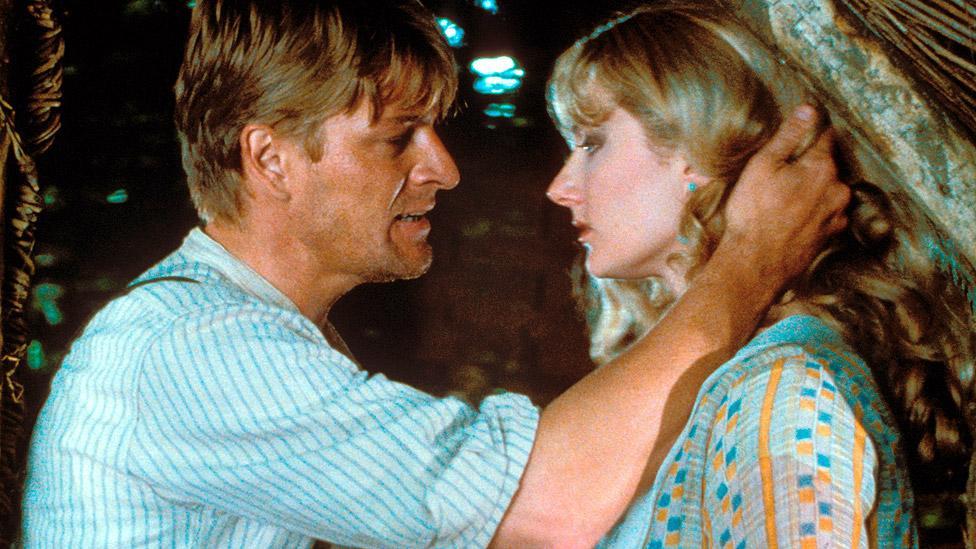Lady Chatterley's Lover: Bristol Uni acquires judge's trial copy
- Published
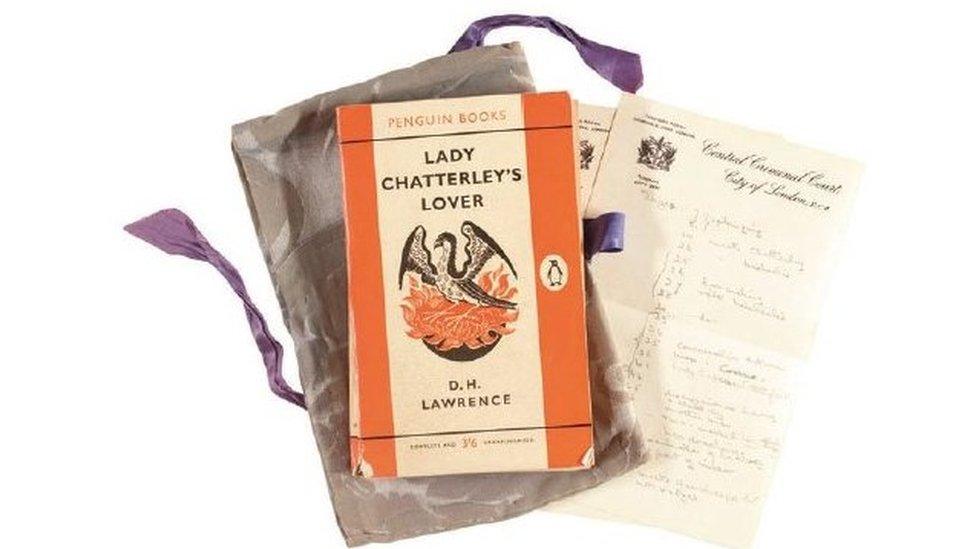
The book was sold at auction in 2018 along with the judge's damask bag and notes compiled by his wife
The judge's trial copy of Lady Chatterley's Lover used in the 1960s landmark obscenity trial has been acquired by the University of Bristol.
The annotated copy of DH Lawrence's book was sold at auction to a private individual in the US in October 2018.
It has been saved for the UK after a crowdfunding campaign started by writers' association English PEN.
It will be housed with personal papers relating to the case by Sir Allen Lane the co-founder of Penguin Books.
There are also transcripts of the trial, press cuttings, photographs, papers and personal copies of the book by key Penguin staff.
Literary merit
Working papers, witness statements and correspondence by Michael Rubenstein, Penguin's lawyer in the trial, are also at the archive.
The book, used by Mr Justice Byrne at the Old Bailey became the subject of expert deferral by the UK Government.
A process started to find a UK buyer who would match the auction price and provide access to the book for researchers and the public.
The crowdfunding campaign by English PEN - founding centre of PEN International - was supported by Neil Gaiman, Amanda Palmer and Stephen Fry.
Financial support was also given by Penguin Books, the TS Eliot Foundation, Friends of the National Libraries, the Penguin Collectors Society and Elizabeth Lane.
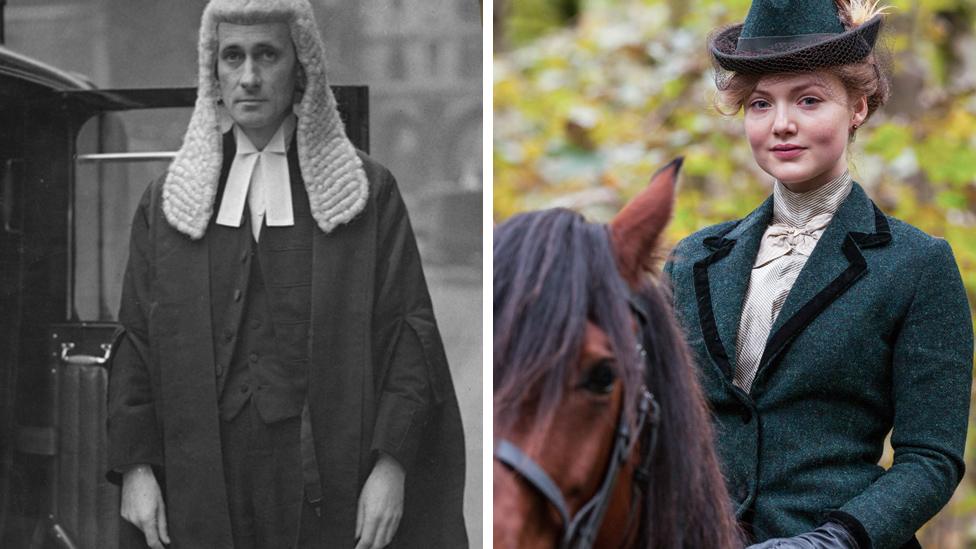
Sir Laurence Byrne who presided over R v Penguin Books Ltd in the 1960 case focusing on the novel, which was dramatised in a BBC series starring Holliday Grainger in 2015
Professor Judith Squires, deputy vice chancellor of the University of Bristol, said the book would be "a source of inspiration, teaching and research for our staff, students and visitors".
The full unedited edition of Lady Chatterley's Lover was published by Penguin in 1960, leading to the trial of the company under the Obscene Publications Act 1959.
This act made it possible for publishers to escape conviction if they could show that a work was of literary merit.
The jury took just three hours to find the publishers Penguin not guilty on 2 November 1960 - a victory that, according to auction house Sotheby's, "helped bring to birth a more liberal and permissive Britain".
- Published13 May 2019
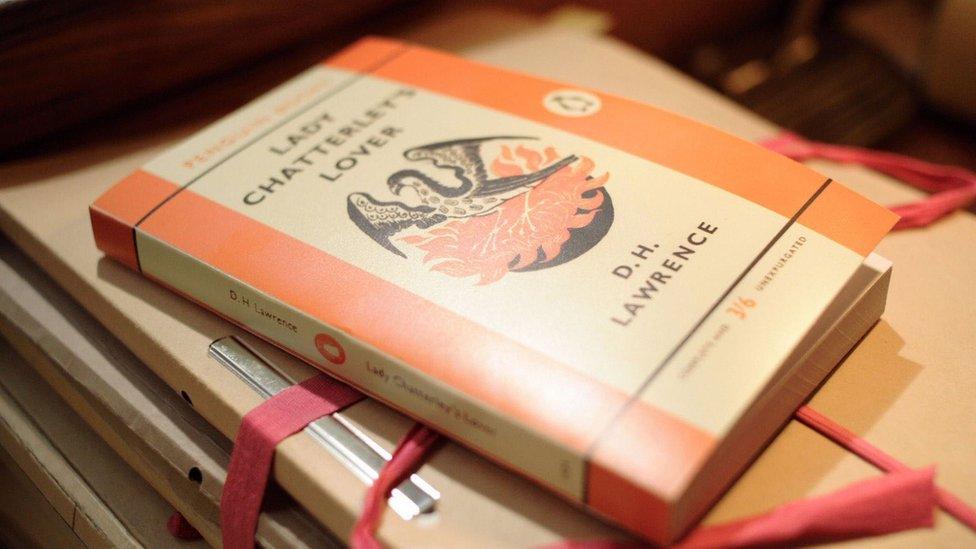
- Published31 October 2018
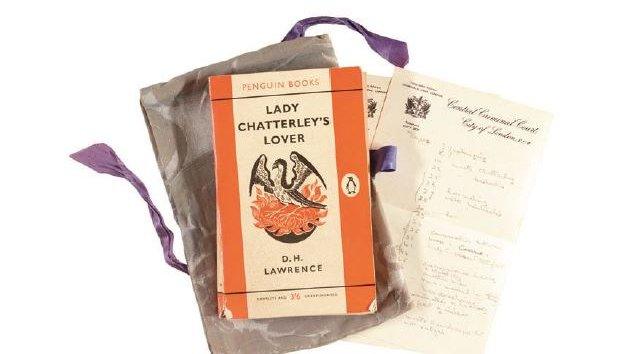
- Published16 November 2017
